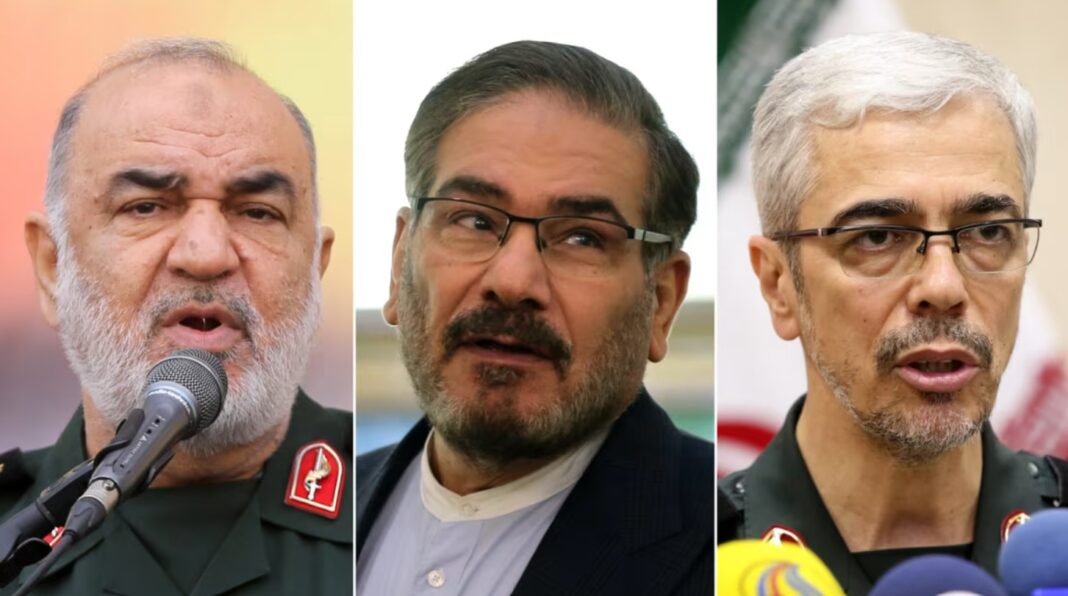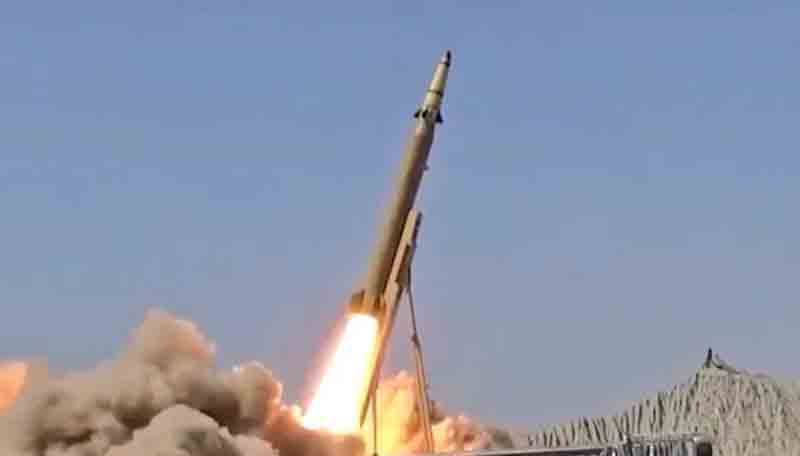Explosions echoed over Tel Aviv and Jerusalem as sirens blared throughout Israel on Friday night, following what the military spokesman described as missile launches from Iran. According to Iran’s state news agency IRNA, hundreds of ballistic missiles were fired in response to Israel‘s most significant attacks on Iran, which targeted the vast underground nuclear facility at Natanz and eliminated its top military leaders. There were no immediate reports of casualties.
Israel announced that these strikes marked the beginning of “Operation Rising Lion.” Iran’s Supreme Leader Ayatollah Ali Khamenei accused Israel of instigating the strikes and provoking a war. U.S. President Donald Trump stated that it was not too late for Tehran to stop the bombing campaign by negotiating a deal regarding its nuclear program.
As night fell on Friday, Iranian media reported explosions in the northern and southern outskirts of Tehran and at Fordow, located near the sacred city of Qom, a second nuclear facility that had been untouched in the initial wave of attacks. Air defenses were activated throughout Tehran, and explosions were audible in Isfahan. Israel’s military confirmed it was targeting Iranian missile and drone launch sites and had also struck another nuclear facility in Isfahan.
Israeli Prime Minister Benjamin Netanyahu declared that the Israeli campaign aimed to eliminate an existential threat posed by Iran, referencing the failure to prevent the Holocaust during World War Two. He stated that Israel’s operation “will continue for as many days as necessary to eradicate this threat,” during a televised address. “Generations from now, history will note that our generation stood firm, acted decisively, and secured our shared future.”
In a phone interview with Reuters, Trump remarked that it was uncertain whether Iran’s nuclear program had endured. He mentioned that nuclear discussions between Tehran and the United States, planned for Sunday, were still on the agenda, although he was unsure if they would occur.
“We were aware of everything,” Trump remarked regarding the Israeli assault plans. “I endeavored to prevent humiliation and death for Iran. I made significant efforts to save them because I would have loved to see a deal come to fruition,” Trump stated. “They still have the opportunity to negotiate a deal; it’s not too late.”
Earlier, Trump shared on Truth Social: “Iran must reach an agreement before there is nothing remaining.” Tzachi Hanegbi, Israel’s National Security Adviser, indicated that military action alone would not eliminate Iran’s nuclear program, but could “establish the conditions for a long-term agreement, spearheaded by the United States” to eradicate it.
Decapitation
Two regional sources reported that at least 20 Iranian military leaders were killed, a shocking decapitation reminiscent of Israeli strikes that quickly dismantled the leadership of Lebanon’s once-dreaded Hezbollah militia last year.
Iran also reported the deaths of six of its leading nuclear scientists. Among the generals killed on Friday were the chief of staff of the armed forces, Major General Mohammad Bagheri, and the chief of the Revolutionary Guards, Hossein Salami. Major General Mohammad Pakpour, who was rapidly promoted to succeed Salami as the Guards commander, pledged retaliation in a letter to the Supreme Leader that was broadcast on state television: “The gates of hell will open to the child-killing regime.”
Iranian media displayed images of ruined apartment buildings, reporting that nearly 80 civilians lost their lives in assaults aimed at nuclear scientists while they were in their beds, and over 300 individuals were injured. Iran’s capacity to retaliate using weapons launched by its regional proxies has significantly diminished over the past year, following the fall of its ally Bashar al-Assad in Syria and the severe weakening of Hezbollah in Lebanon and Hamas in Gaza.
Israel announced that a missile launched from Yemen – where the Houthi militia remains one of the few Iranian-aligned factions capable of targeting Israel – had struck Hebron in the occupied West Bank. The Palestinian Red Crescent reported that three Palestinian children sustained injuries from shrapnel in that area.
Israel claimed that Iran had sent approximately 100 drones towards Israeli territory on Friday, a statement Iran refuted, and there were no indications that any drones reached Israeli objectives.
The United Nations Security Council was scheduled to convene on Friday at Tehran’s request. In a letter to the Council, Iran asserted that it would respond decisively and proportionately to Israel’s actions, which it labeled as “unlawful” and “cowardly.”
The price of crude oil surged amid concerns of broader retaliatory strikes in a key oil-producing area, although there were no reports of damage to oil production or storage facilities. OPEC indicated that the escalation did not warrant any immediate adjustments to oil supply.
Mossad operating deep within Iran
An Israeli security source revealed that Mossad commandos had been operating deep within the Islamic Republic prior to the attack, and that the Israeli intelligence agency and military had conducted a series of covert operations targeting Iran’s strategic missile capabilities. The source also noted that Israel had set up a drone attack base near Tehran. The military reported that it had targeted Iran’s air defenses, destroying “dozens of radars and surface-to-air missile launchers.”
Israeli officials indicated that it might take some time to assess the extent of the damage to the underground nuclear facility at Natanz, where Iran has enriched uranium to levels that Western nations have long claimed are appropriate for weaponization rather than civilian purposes.
Iran has consistently maintained that its nuclear program is solely for civilian use. This week, the U.N. nuclear watchdog determined that Iran was in breach of its commitments under the global non-proliferation treaty. Tehran had been in discussions with the Trump administration regarding an agreement to limit its nuclear program, aiming to replace the deal that Trump withdrew from in 2018. Tehran has turned down the most recent U.S. proposal.
Discover more from Defence Talks | Defense News Hub, Military Updates, Security Insights
Subscribe to get the latest posts sent to your email.





